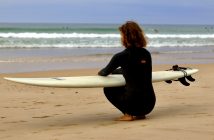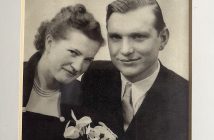Having studied in the U.S (Santa Barbara) for almost four years now, I have encountered many other international students from all corners of the world. Some come here to party (combined with studies), some come here to learn the language and take six months or a year away from home, and some come here to get their degrees. What is noticeable, though, is that it seems as if a vast majority of the international students I have encountered want to work during and after their studies in the U.S. As some might know, to get a work visa in the U.S as an international is very hard and requires a lot of extraordinary skills and/or luck. In fact, if you’re not an overqualified engineer or chemist your chances are slim to get a work visa after your studies. Though, with an F1 visa (student visa) there are some restricted opportunities to work during your studies;
On campus employment rules:
- You must maintain valid F-1 status
- You can work up to 20 hours per week while school is in session
- You can work full-time on campus during holidays and vacation periods if you intend to register for the next academic semester
- You cannot take a job from a U.S. resident
Optional Practical Training (One year work visa after 9 months+ of studies):
- Employment must be “directly related” to the student’s major
- Student must maintain lawful F-1 status
- Student must apply for OPT before completion of all work towards a degree
- Students who have engaged in 12 months or more of full-time Curricular Practical Training (CPT) are not eligible for OPT
Curricular Practical Training (Alternative work/study internship)
- You must have been enrolled in school full-time for one year on valid F-1 status (except for graduate students where the program requires immediate CPT)
- The CPT employment must be an integral part of your degree program or requirement for a course for which you receive academic credit
- You must have received a job offer that qualifies before you submit your CPT authorization request
- Your job offer must be in your major or field of study
Severe economic hardship (Up to 20 hours a week):
- Be in valid F-1 status for at least one academic year (9 months)
- Be in good academic standing
- Provide evidence of economic hardship based on unforeseen circumstances beyond the student’s control
- Show that on-campus employment is neither available nor sufficient
- Make a good faith effort to locate employment on campus before applying
Employment with an international organization:
- The student must have an employment with a “recognized international organization.” Click here to see a recent listing of all “recognized international organizations.”
- The employment must be within the scope of the organization’s sponsorship, and within the student’s field of study.
- The student must have been in valid F-1 status for at least one full academic year.
- The student must be in good academic standing.
For more information click here
Check in later for a follow up on this story




